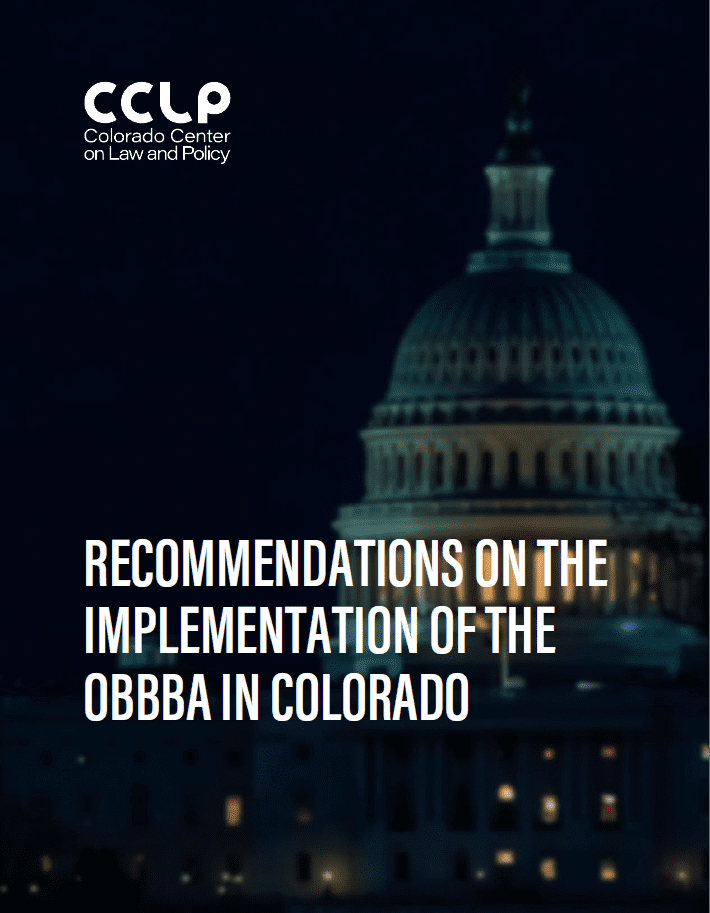View File
If the fiscal cliff discussions fail, the federal budget cuts that will occur as a result of the process known as sequestration could cause a reduction in workforce development services for thousands of Coloradans.
Federal budget cuts that restrict the ability of state and county agencies to provide services will have cumulative adverse effects on Colorado households struggling to make ends meet. Many of the vulnerable services that are in the federal funding category known collectively as non-defense discretionary spending are investments in the working poor and the most vulnerable populations in Colorado. This paper focuses on cuts to key employment and training programs for Colorado workers that could mean the loss of $10.3 million to the state and create an economic barrier for the 43,000 Coloradans who would not be served in 2013.
Workforce Investment: A Critical Strategy for Economic Security, Community Development and State Competitiveness
Investing in workforce development programs increases the likelihood that currently unemployed and underemployed Colorado workers will have access to required transitional education and training programs. A July 2012 brief by the President’s Council of Advisors on Science and Technology, Report to the President on Capturing Domestic Competitive Advantage in Advanced Manufacturing, lists the following recommendations for keeping the nation globally competitive through the creation of a skilled workforce:
- Tap the talent pool of returning veterans.
- Develop partnerships to provide skills certifications and accreditation.
- Enhance advanced manufacturing university programs.
The National Skills Coalition brings together community-based training organizations, community colleges, unions, business leaders, local officials, and research organizations to advocate for public policies that invest in the skills of America’s workers. The coalition recently published data that illustrates the impact of potential cuts on workforce development. Table 1 highlights the cuts to Colorado that are outlined in that report.
Potential cuts from sequestration to Colorado workforce development programs
|
Program |
FY 2012 Funding |
Est. cuts in 2013 from sequester |
Fewer people served |
| Workforce Investment Act |
$38,880,474 |
$2,854,394 |
5,390 |
| Career and Technical Ed |
$15,419,857 |
$2,020,289 |
17,500 |
| Adult Basic Education |
$6,955,401 |
$549,477 |
303 |
| Vocational Rehabilitation |
$40,548,289 |
$3,203,315 |
1,039 |
| Wagner-Peyser Employment |
$11,123,996 |
$857,884 |
19,094 |
| Total |
$112,928,017 |
$10,250,823 |
43,326 |
Colorado’s ability to remain competitive depends, at least in part, on the skills of its workforce. The economic security of Colorado workers and their families depends, at least in part, on the opportunity to access the training and skills needed for a changing economy. Given that Colorado has made, and continues to make, investments in postsecondary education and workforce training, the threat of sequestration is significant.
Conclusion: Another Way
An alternative policy to automatic cuts to employment initiatives that stabilize the middle class, while offering economic mobility for the working poor, is a policy that supports every Coloradan having access to at least two years of education or training past high school – leading to a vocational credential, industry certification, associate’s degree, or the stepping stone first two years of college. This is not a universal solution for the many barriers struggling workers and their families face. Nor is this the only investment that should be considered in budget negotiations – vulnerable individuals and families require a continuum of services currently scheduled for reduced funding. This is one strategy that can be used to advance Colorado’s economic recovery. The return on this investment would be intergenerational, sustainable and include advantages at every level of economic development:
• The state becomes more competitive.
• Employers gain the skilled workforce they desire.
• Communities are enhanced.
• Families increase their opportunities for economic security.
The Colorado Center on Law and Policy is the state affiliate for the National Skills to Compete Coalition. To join the cyberspace efforts urging policymakers to put people before politics, click here to read the NDD letter to Congress.




CCLP Public Comment to HHS Reinterpretation of Federal Public Benefit
Public Comment, Publications